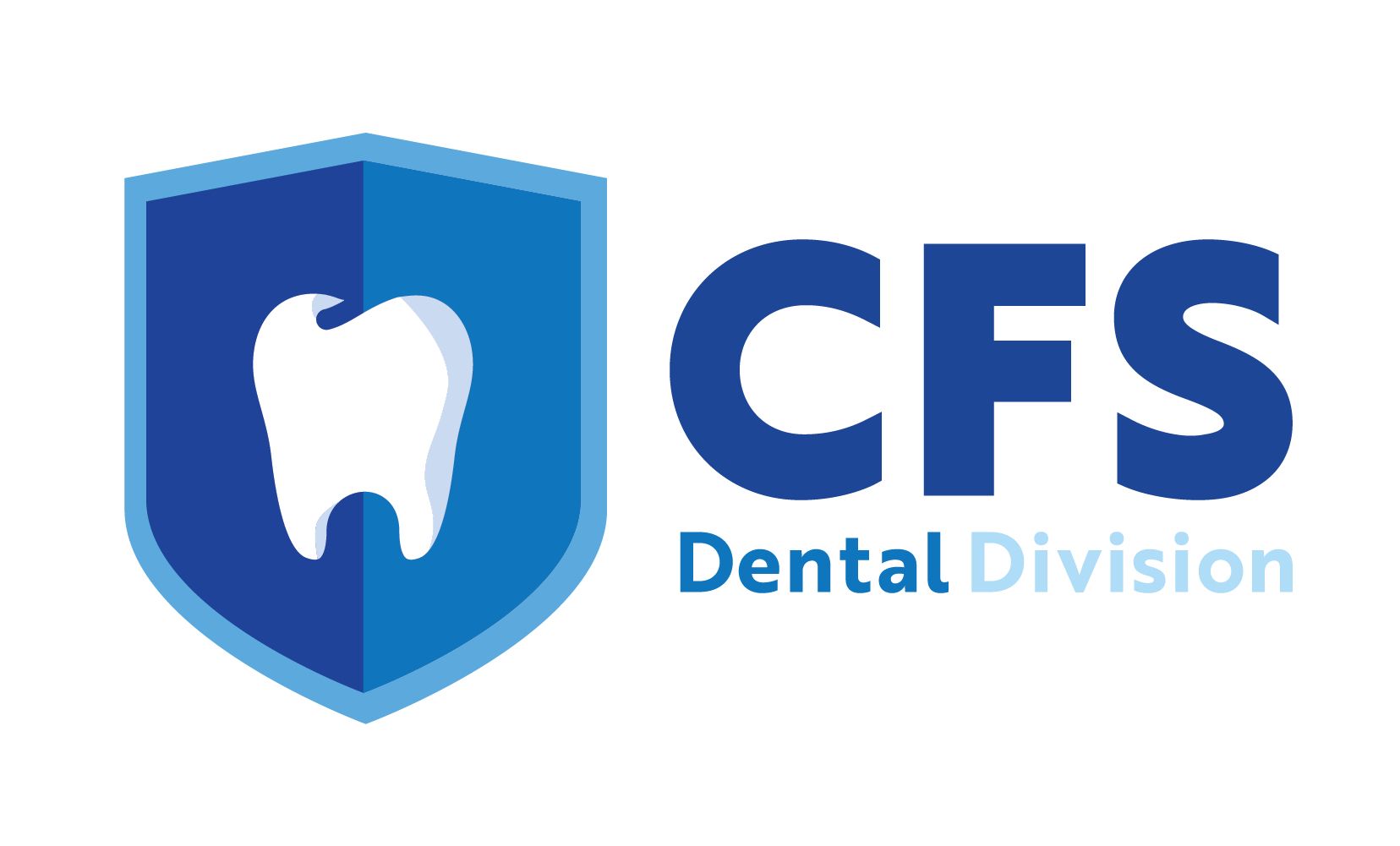The Jump-Start Dentist

When looking to own a dental practice or dental specialty office a Dentist/Dental Specialist is faced with this daunting choice: ‘Do I buy an existing office or build my own?’ Well, I am hoping to help people interested in their journey bridge this gap and find out what is best for them.
To start, let’s acknowledge some facts here:
- Start Ups are not bad. Every office in existence started somewhere.
- Buying an office is not bad, there are a lot of good offices that have strong inspiring values that people want to emulate.
- There are start ups that do not do too great and have a lot of problems.
- There are acquisitions that are overvalued and overpromising you.
- Either option can make you a lot more income and seg-waying into ownership will in almost every instance up your income ceiling if done properly.
With this baseline knowledge let us dive into how we can find what is best for YOU. We will start with buying an office since as of October 2025 we have had more acquisitions in play than the last two years combined and there is clearly a shift in the market.
Now there are two main strategies in buying a dental office and today I am going to focus on one strategy that has become very popular, The Jump-Start Practice. Now, purchasing a Jump-Start is basically any office under $600,000 in value. These offices are unique in that they typically carry a lot of hygiene and/or refer a lot of patients away. The income is low but it is normally due to low amounts of active cases or limited availability in the true schedule of the office.
The reason these offices are called Jump-Starts
are that they require working and human capital to bring the bulk of the value to the new buyer. You are not buying this office to leave it as is or just do what the existing owner is doing. These offices need TLC (not the TV channel) , but true Tender Love and Care. When buying a Jump-start you are committing to increasing hours, potentially bringing on more staff or paying overmarket to keep on more doctors than the current work load needs. All of this is done for a very intentional reason. You are buying this office to expand and grow and this will require a modest working capital loan from your lender to invest in Marketing, Overstaffing and most importantly revamping the office (typically equipment in this office has been around since you were born and the look will not always appeal to today’s age of patient.)
With all of these hurdles in mind, You might wonder, is this even worth it? The answer I am going to give isn’t the best. The answer is Maybe? We need to check a few items and pass a few tests to make sure you are on track:
1. Run demographics on the area:
- Does this area support your procedures you want to perform?
- Is there a lot of competition?
- Sometimes it seems saturated in an area but dentists are tricky. A lot of people have different selling points to their offices. You need to find a region that supports your preferred market where you can grab strong referral partners and make strategic alliances for a better future.
2. Apply for Funding
- Are you lendable? It is important to speak with a Dental Lender to understand where you stand as a borrower. Make sure you will be eligible for working capital and even the offices you are looking at. A lot of people make the mistake of doing this last and this is the most crucial step because if a bank refuses to lend then you probably do not want it.
- Find out the maximum you qualify for, this will allow you to hone in on the right parameters of office and keep your goals tangible. Nothing worse than putting in all of this effort and finally getting a great deal to be told you need to wait a year and do it all over again ☹
3. Hire a team
- This seems easy but a team needs to be people who jive with your goals and interests. You need a few people in almost every scenario. These people include but are not limited to the following: A financial advisor, Insurance team, Accountant, Banker, Real Estate Agent, Lawyer, and even potentially a consultant!
- Some of the team may overlap on duties but the main point is to start building this and pick one of these people to be your quarterback to run the deal. This typically falls on the advisor to run the show and make sure all is going according to plan.
4. Get a valuation
- Now I tell all of my clients that you probably want to do a shorthand valuation to start. This means hiring an advisor to tell you if the price is even in the right range! Here at CFS we do it for free within reason and I will tell you why. The main reason is if you buy an office that grows too slow, you will be faced with challenges to offload the office if needed and will most likely be ineligible for future lending until it grows for at least TWO YEARS!
- This is the most crucial part as everyone tries to low ball or high ball a practice. Brokers will do it to help their clients on both sides and my advice is to try and buy the office for as fair as you reasonably can. This means being okay with overpaying sometimes as high as 25% on value. Now this does not mean to get ripped off but it means if we have a solid plan to grow than it is okay to overpay sometimes. You can also win in other ways by negotiating better lease terms, locking in the selling doctor on a good rate / longer time frame, maybe even getting other concessions later on. Sometimes the people who underpay for an office get what they pay for: The doctor could bail early, staff doesn’t care / is not bought in, patients do not get a letter, the list goes on and on.
5. Do not get greedy and do not fixate on one office
- Just like dating , there are a lot of offices out there and people often feel committed before the process even starts. I would highly recommend reviewing 3-5 offices at a time. Even the less than desirable ones so you can learn how to negotiate and try out the effectiveness of your selected team.
I hope this small article helps anyone in this situation. Please write in if you want other topics to be discussed here or even on the Dental Dummies Podcast! We will be releasing an article every week!
Thank you for your time and good luck on your journey! Make it your own but do not be scared to ask for help. We are fortunate that dentistry has less than a 1% fail rate so do not be discouraged or scared to pursue your dream and be an owner!
Written by: Joseph DiMarco
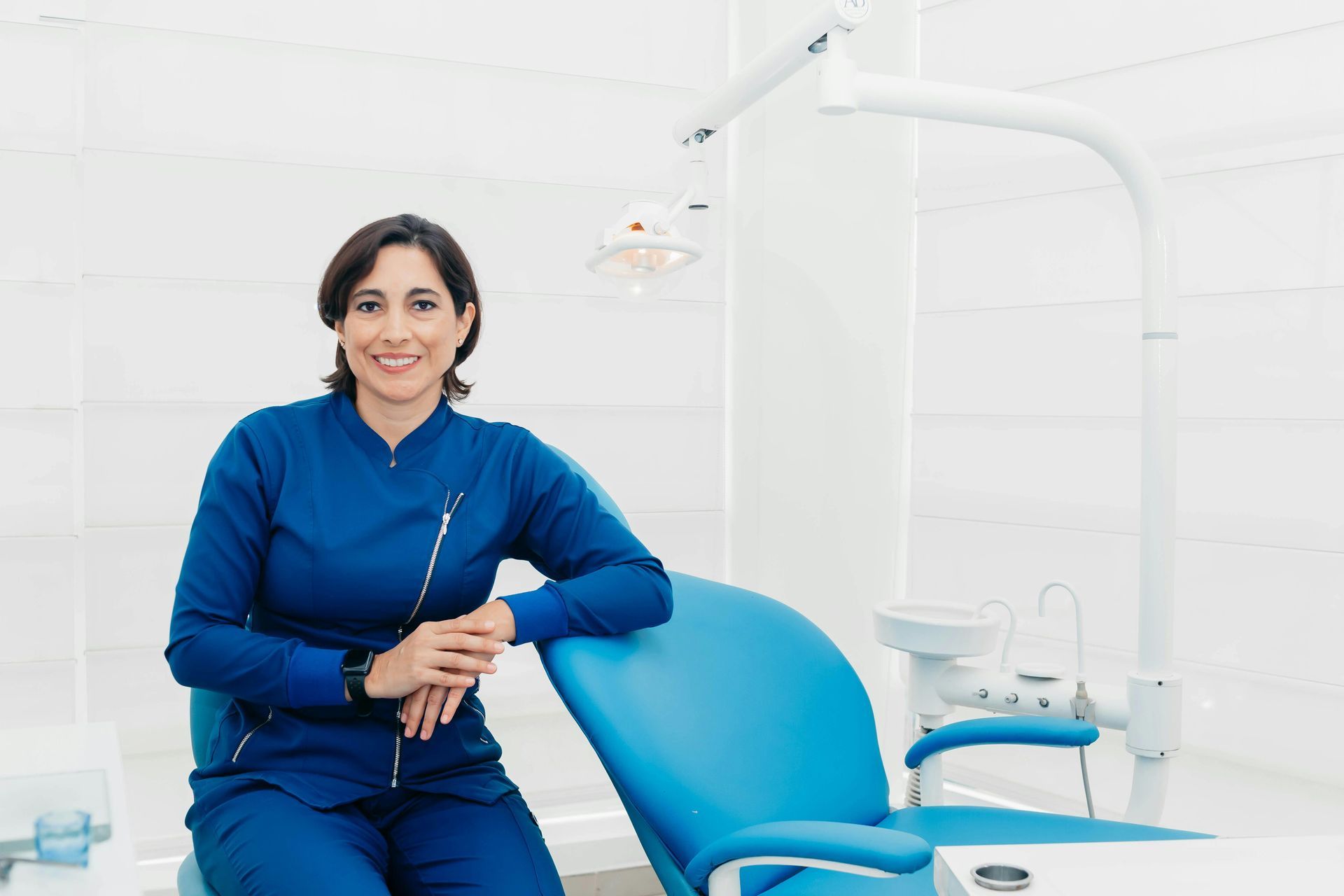
When it comes to protecting your business or personal assets, how you shop for insurance matters just as much as what you buy. While going directly to a single insurance company may seem convenient, working with an independent broker offers significant advantages that can make a real difference when it counts. First, choice matters . A direct insurance company can only offer its own products. A broker, on the other hand, represents multiple carriers. That means instead of getting one option, you get access to a range of coverage forms, pricing structures, and underwriting appetites. This competition often results in better coverage and more competitive premiums. Second, brokers work for you — not the insurance company. Their role is to advocate on your behalf, helping you compare policies objectively and understand the fine print. Insurance contracts can be complex, with exclusions and limitations that aren’t always obvious. A broker helps you navigate those details, so you don’t discover gaps in coverage after a claim. Third, as your needs change, a broker can adapt with you . Whether your business grows, your risks evolve, or the market shifts, a broker can re-shop your policy and negotiate with carriers to ensure your coverage keeps pace. Finally, when a claim happens, having a broker in your corner can be invaluable. Instead of facing the carrier alone, you have a professional who understands the process and can help facilitate communication. To wrap it up, buying direct gives you one perspective. Working with a broker gives you options, advocacy, and expertise — and that combination often leads to stronger protection and better long-term value for you and/or your business. Written by: Nick Cepparulo

When purchasing a personal disability policy to protect your income, it is crucial to purchase a policy that properly reflects your specific needs as a dental professional. Within disability policies there are key features that your policy must include to make sure in the event of a disability, your benefit is paid properly, and you are protected in the way you deserve. What is The Most Important Feature? Own Occupation Rider This rider can be classified by several different names including True Own Occupation Rider, Regular Occupation, or Own Occupation. Own Occupation means that you are considered to be disabled and eligible for your benefit if you cannot perform the duties of your specific job. If you have a broader definition of disability, such as Social Security Disability, to receive your benefit you would have to be disabled to the point you cannot perform any job whatsoever. This is a crucial difference as you may not be able to perform clinical dentistry because of your disability, but you can receive the monthly benefit from your policy as well as performing another line of work, in most cases actually working as a professor at a dental school or residency! Won’t my benefit become less valuable over time due to inflation? Cost of Living Adjustment Rider (COLA) The COLA rider is a guard against inflation to protect your buying power while receiving your benefit. While on disability, your benefit will increase annually by 3% to ensure your benefit does not lose value due to inflation over the period that you are on claim. What if I am not fully disabled but still suffer losses from a long-term injury? Partial Disability Partial disability benefits pay out when you lose 15% of income, time, or duties due to a disabling event. For example, a dental professional hurts their hand and is only able to work 4 days a week instead of 5. This would be a 20% loss of income, time, and duties and would result in a 20% partial disability payout in proportion to your current disability benefit. The difference between policies is in how partial disability is calculated. In calculating your pre-disability income, carriers will refer to what is called a lookback period. A lookback period is the number of years that a carrier will take into account previous earned income to decide the amount of disability benefit given in relation to your total monthly benefit at the time of disability. Some carriers will offer longer lookback periods and take the average of the best two years of earnings. Other carriers offering disability may have shorter lookback periods offering less forgiveness to years with lower earnings. These are the key elements in a disability policy for dental professionals to be aware of when purchasing a policy or evaluating an existing one. There are however different supplemental benefits that the carriers offer with their policies to differentiate themselves. For more information on the key features to look for in a disability policy or the supplemental benefits offered by carriers, contact a CFS Agent, we’re here to help! Written by: Neal Cudahy
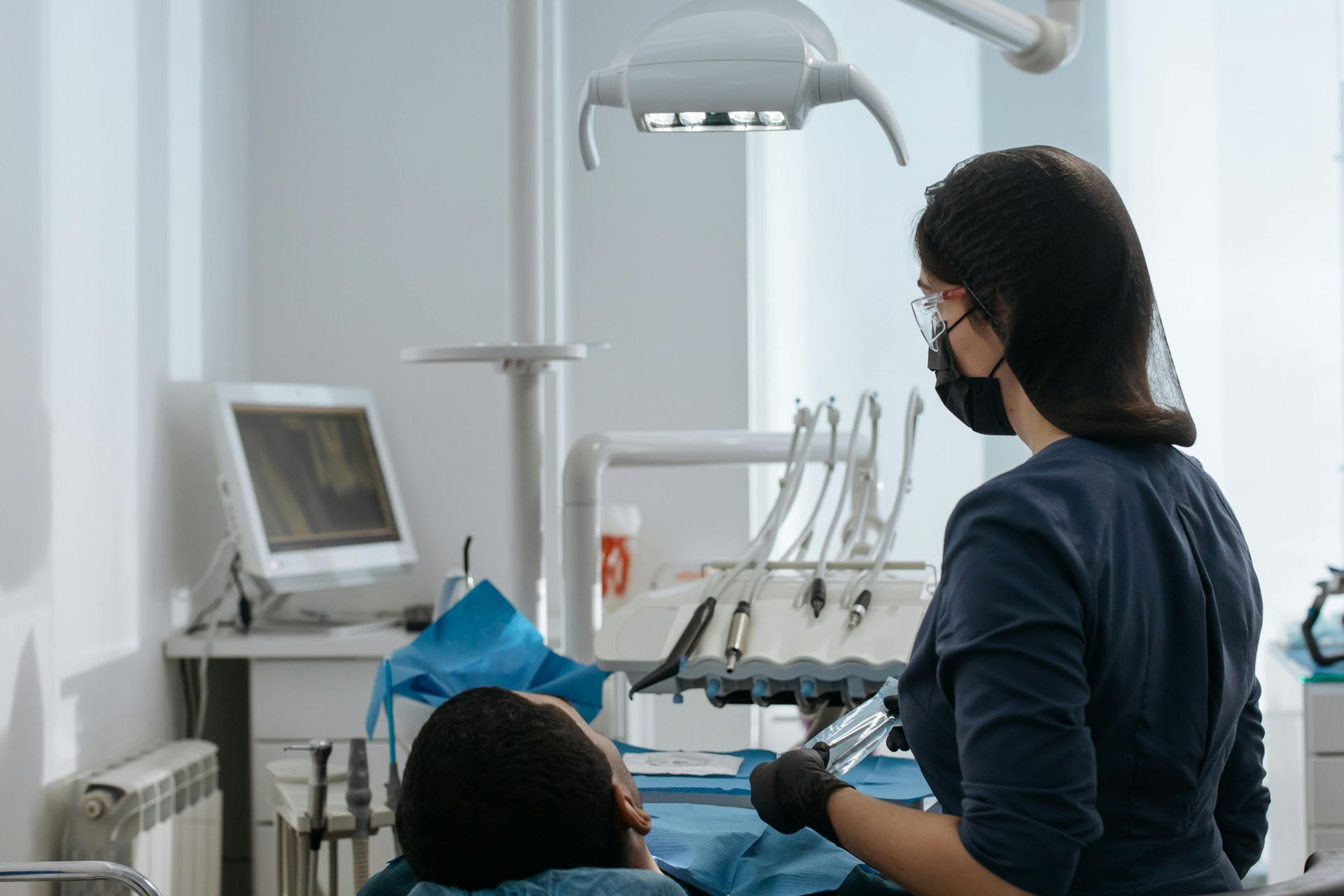
Dentistry is a high-income, highly skilled profession that positions individuals for long-term success. During dental school and residency, speakers often emphasize the importance of practice management and financial management as central pillars of a successful career. However, one of the more challenging conversations involves personal life insurance. Proper planning in this area allows dentists to protect themselves enabling them to focus on what they do best — caring for patients. Life insurance is a risk management tool, not just a formality. By understanding its mechanisms and protective benefits, individuals can harness life insurance as a valuable asset that supports them throughout various phases of their career. Compared to many other professionals, dentists typically enter the workforce with significant student loan debt, often ranging from $100,000 to $600,000 or more. After graduation, additional financial responsibilities can follow quickly, including purchasing a home or acquiring a dental practice. Carrying such a heavy debt load early on can make dentists, and their families, more vulnerable to financial strain if unexpected events occur and proper planning is not in place. Dentists can secure life insurance early in their career and use it as a protective tool if circumstances do not go as planned. NOT ONE-SIZE-FITS-ALL Life insurance is not one-size-fits-all, especially for dentists whose financial responsibilities tend to grow rapidly. The two of the most common types of life insurance are Term Life and Whole Life, and each serves a different purpose within a dentist’s overall financial plan. TERM LIFE INSURANCE Term life insurance provides coverage for a specific period of time, commonly 10, 15, 20, or 30 years. If the insured passes away during that term, the policy pays a death benefit to the beneficiaries. Term life insurance is often the most cost-effective way to obtain a large amount of coverage, making it especially valuable during high-liability years. It can help protect a spouse or family while student loans, a mortgage, or practice debt are still outstanding. Term life insurance ensures loved ones are not burdened with debt or forced to make significant lifestyle changes should the unexpected happen. Some Term policies are also convertible, allowing dentists to convert term coverage into whole life insurance later without additional medical underwriting—an attractive option for future practice owners who may want access to cash value in the future. WHOLE LIFE INSURANCE Whole life insurance, on the other hand, provides lifelong coverage. In addition to a guaranteed death benefit, Whole life policies build cash value over time. This cash value grows on a tax-advantaged basis and can be accessed during the insured’s lifetime through policy loans or withdrawals. For dentists with stable income and long-term planning goals, Whole life insurance can serve as both a protection and a cash accumulation tool supporting legacy planning, future expenses, or conservative diversification alongside traditional investments. LIFE INSURANCE WORKS FOR YOU The most effective strategy is not choosing one option over the other but understanding how each fits into different stages of life. Discussing life insurance can often feel uneasy because it requires contemplating potential future situations that no one wants to imagine. However, life insurance ultimately empowers dentists to pursue their goals confidently, knowing their loved ones and financial obligations will be protected. Written by: Julia Breneman
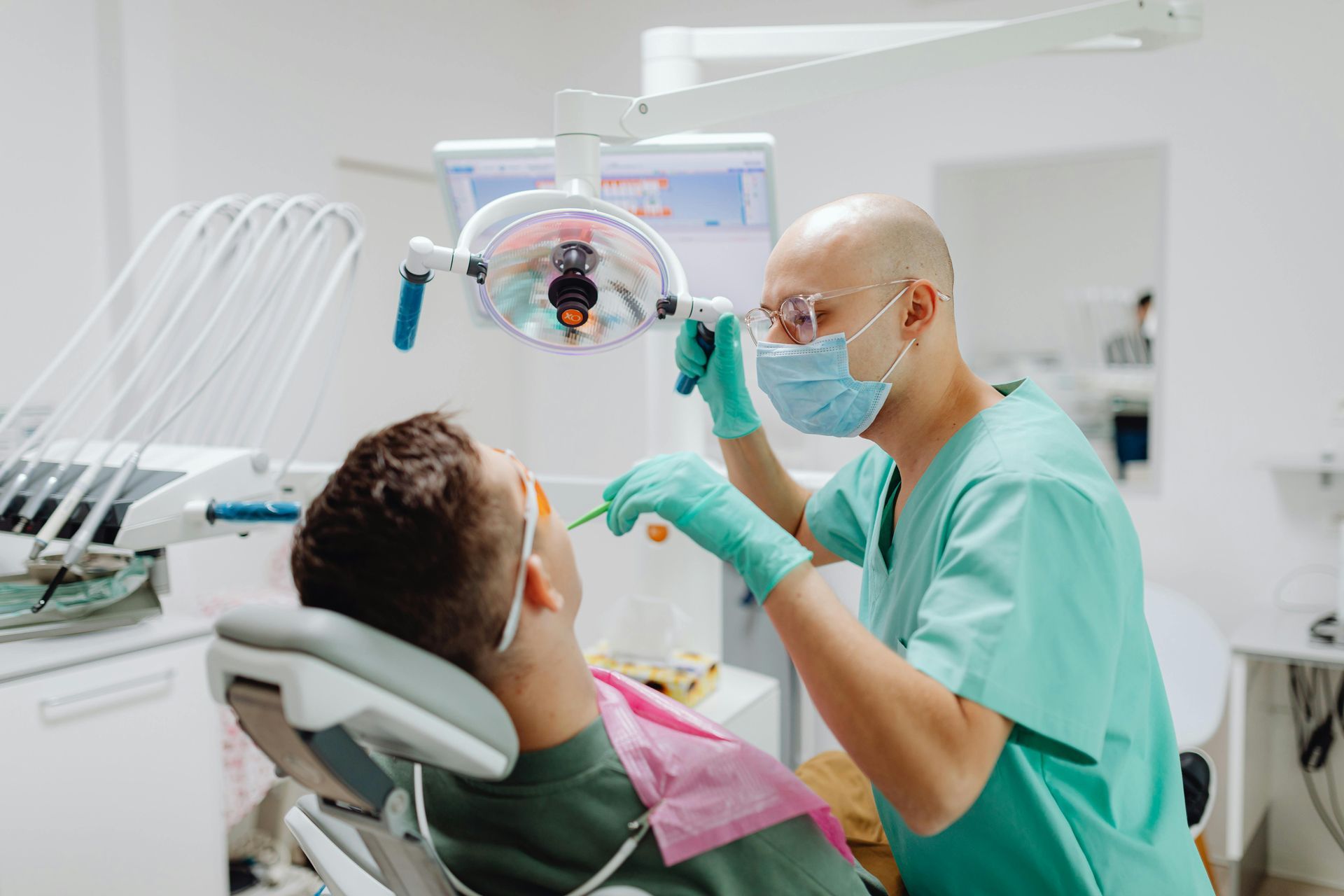
When applying for life insurance, many people believe that age is the most important factor in determining their premium. While age does play a role, your health and lifestyle habits often have an even greater impact on your eligibility, coverage options, and overall cost. Life insurance carriers evaluate risk carefully. Understanding what factors they review can help you prepare for the application process and make more informed decisions. Health History and Medical Conditions One of the first things an insurance carrier evaluates is your overall health and medical history. This includes both current conditions and past diagnoses. Carriers commonly review chronic conditions, blood pressure and cholesterol levels, height and weight, prior surgeries or hospitalizations, and family medical history. Having a health condition does not automatically disqualify you from coverage. In many cases, well-managed and well-documented conditions are viewed more favorably than untreated or inconsistent care. Tobacco and Nicotine Use Tobacco use is one of the most significant factors affecting life insurance premiums. This includes cigarettes, cigars, chewing tobacco, vaping, and other nicotine products. Applicants who use nicotine typically pay higher premiums due to increased health risks. However, many carriers will offer non-smoker rates after a period of nicotine-free use. Proper timing and disclosure can make a substantial difference in cost. Lifestyle and Dangerous Activities Insurance carriers also consider how you spend your time outside of work. Certain hobbies and activities are considered higher risk and may affect pricing or coverage terms. Examples include skydiving, scuba diving, rock climbing, racing, and private or recreational aviation. Participation alone does not necessarily result in higher premiums. Frequency, training, certifications, and safety precautions all play an important role in underwriting decisions. Driving Record and Legal History Many applicants are surprised to learn that their driving record can impact life insurance premiums. Carriers may review DUI or DWI convictions, reckless driving citations, multiple moving violations, and license suspensions. A clean driving record reflects responsible behavior, while recent or repeated violations may raise concerns. Serious criminal history may also affect eligibility depending on severity and timing. Alcohol and Substance Use Moderate alcohol consumption is generally acceptable. However, excessive use or a history of substance abuse can significantly impact underwriting decisions. Applicants may be asked about alcohol intake, prior treatment or rehabilitation, and prescription medication usage. Accuracy and transparency are critical during this portion of the application. The Advantage of Working With a Brokerage As an insurance brokerage, we are not tied to one carrier. This allows us to evaluate multiple companies and identify the carrier that best suits your health profile, lifestyle habits, and long-term goals. Different carriers view risk differently, and our role is to advocate on your behalf and match you with the most appropriate option available. The Bottom Line Life insurance underwriting is about accuracy, not perfection. An informed applicant is a stronger applicant. Understanding how your health and lifestyle affect your application allows you to plan ahead and avoid unnecessary surprises. Choosing the right policy and carrier is an important decision. By working with a brokerage that understands both insurance and your profession, you can feel confident knowing your coverage is tailored to you and will be there when it matters most. Written by: Reghan Handley
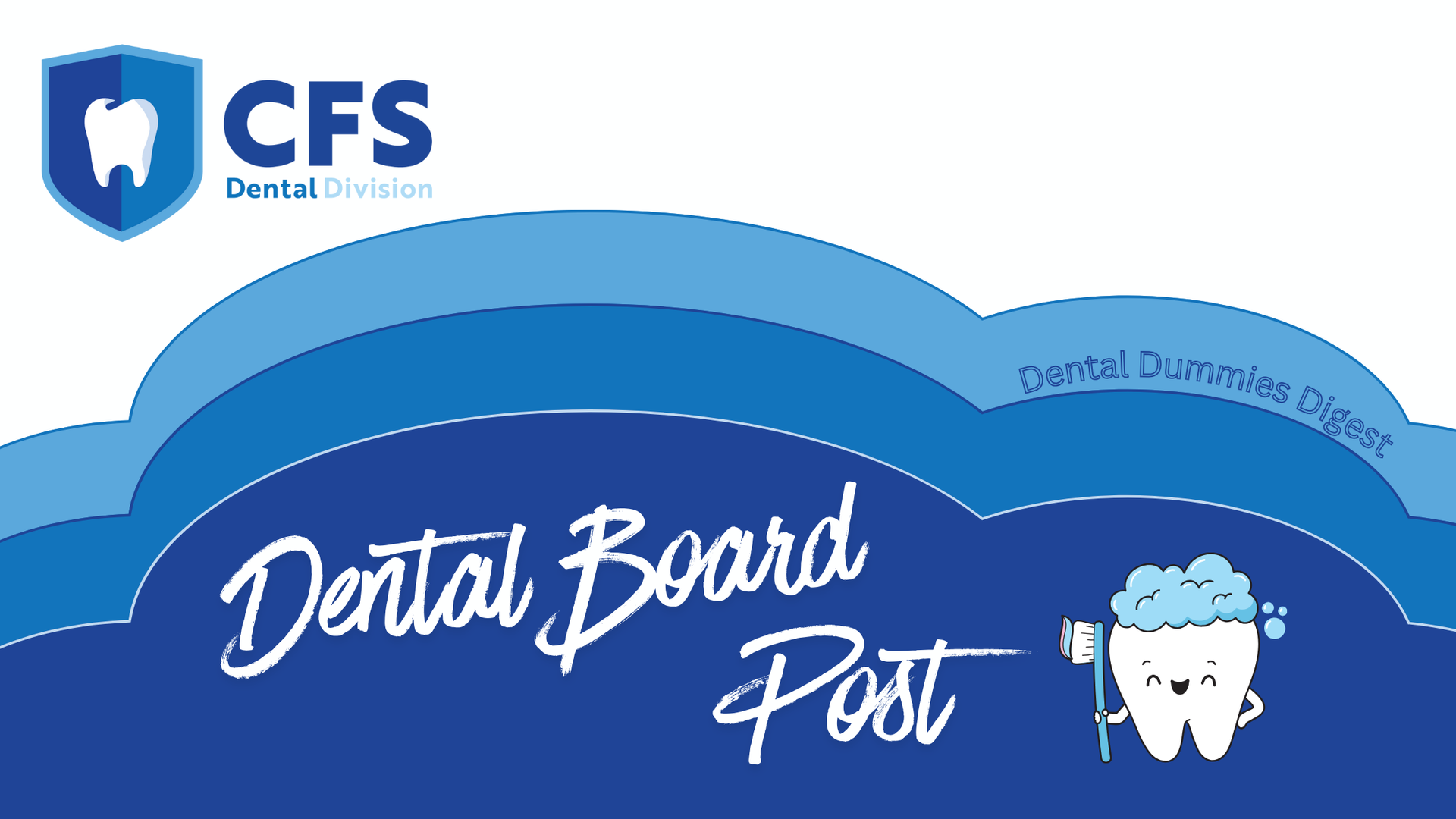
Dental School Debt Rewritten: What the OBBB Act means for Future Dentists It’s no secret that the cost of dental education has reached a breaking point. Today, nearly 78% of dental school graduates begin their careers carrying more than $312,000 in student loan debt , a financial burden that can shape career decisions long before the first patient is seen(1). As changes to federal student loan policy loom, students considering a dental career must un derstand not only how we arrived here—but how to prepare for what’s coming next. Why Dental Education Comes With a High Price Tag Becoming a dentist requires a minimum of eight years of postsecondary education , often followed by additional training. Unlike medical residents, however, most dental and orthodontic residents do not receive a salary or stipend during training. Instead, many continue paying tuition while interest accrues immediately on borrowed funds. As a result, federal loans have become the backbone of dental education financing: Approximately 85% of dental students rely on Direct Loans (1) Nearly 80% of those students also use Grad PLUS loans to cover costs beyond Direct Loan limits (1) Until now, these federal options provided flexibility, borrower protections, and access to income-driven repayment plans—features not typically available in private lending (2). What the OBBB Act Changes for Dental Students Beginning July 1, 2026 , provisions of the One Big Beautiful Bill (OBBB) Act will significantly reshape how graduate education is financed (3). Key changes include: Direct Unsubsidized Loan limits capped at $50,000 per year , with a $200,000 lifetime maximum Elimination of the Grad PLUS loan program entirely For dental students, whose cost of attendance often far exceeds these limits, this creates a substantial funding gap. The Shift Toward Private Lending With federal options restricted, many students will be pushed toward private or commercial loans to bridge the difference. These loans often: Carry higher interest rates Require stronger credit profiles or co-signers Lack federal borrower protections such as income-driven repayment, deferment, or forgiveness options This shift places greater importance on something students don’t often think about early enough: creditworthiness. Why Creditworthiness Will Matter More for Dental Students Creditworthiness affects far more than student loans—and in a post–Grad PLUS environment, it may determine whether private financing is available at all . As federal lending options narrow, lenders will place greater emphasis on an applicant’s credit profile when evaluating risk. A strong credit history can influence: Interest rates: Higher credit scores often qualify borrowers for lower interest rates, which can translate into tens of thousands of dollars in savings over the life of a loan. Loan approval and terms: Lenders review credit history to determine not only whether a borrower is approved, but also the structure of the loan—including required co-signers and repayment terms. Housing opportunities: Many landlords assess credit scores during tenant screening, and lower scores may result in higher security deposits or limited rental options. The good news? Several of the most important factors that contribute to creditworthiness are within your control—and building them early can significantly improve your financial flexibility during and after dental school. Practical Ways Students Can Build Credit Now Even during school, small habits can make a meaningful difference: Pay every bill on time Payment history is the single most important factor in your credit score. Automate payments whenever possible. Keep credit utilization low Aim to use less than 30% of your available credit limit on credit cards. Limit new credit applications Each hard inquiry can temporarily lower your score—only apply when necessary. Keep older accounts open Length of credit history matters. Even unused accounts can help your score if kept in good standing. Review and dispute errors Regularly check your credit report and challenge inaccuracies that could unfairly drag your score down. Preparing for Dental School in a Changing Student Loan Landscape Being mindful of when you apply to dental school—and how you prepare financially beforehand—has never been more important. Establishing strong credit habits early won’t just help you adapt to upcoming loan changes; it can also reduce borrowing costs and improve financial flexibility long after graduation. In a shifting lending landscape, preparation is power. References Istrate EC, Samanta A, Booker CL, West KP. Dentists of Tomorrow 2024: An Analysis of the Results from the ADEA 2024 Survey of U.S. Dental School Seniors. ADEA Education Research Series, Issue 7, December 2024. U.S. Department of Education, “Federal vs. Private Loans,” FederalStudentAid, https://studentaid.gov/understand-aid/types/loans/federal-vs-private (Accessed August 20, 2025.) Sec. 81001, One Big Beautiful Bill Act (Pub. L. 119-21) Stripe. How to Determine Creditworthiness and Build Your Credit Written by: Dr. Beatrice Williams

The Importance of Choosing a Highly Rated Carrier When choosing an insurance carrier for your policy, you may only be worried about what your monthly premium will be. So, you will more than likely pick the cheapest option. While it may be tempting to save a few dollars, picking a low rated insurance carrier may cost you in the long run. Evaluating a Carrier's Financial Stability When looking into a carrier, the first item to look at is their Financial Credit Score. This is similar to your own credit score, as it indicates if a carrier is financially healthy. You may be asking, why would I care? A low rated carrier may not be able to pay a claim or may delay payment for a claim due to their poor finances. When buying insurance, you are placing trust in a company for when you will be at a loss. The purpose of insurance is to transfer risk, and that transfer of risk only works if both ends of the relationship can uphold their promise. If you were to pick a highly rated carrier rather than the cheaper option, you can live without the fear of not being covered if you were to make a claim. Understanding the Value of a Highly Rated Carrier Beyond financial stability, highly rated carriers usually demonstrate reliability in every aspect of their business. A high rating not only comes from a great financial history, but also claim-handling performance, customer satisfaction, and the ability to perform during a disaster. Achieving this status also means that your premium is less likely to increase and will more than likely stay stable. In essence, a higher rating shows that your insurance carrier will survive a recession/financial hardship and is virtually too big to fail. The Bottom Line At the end of the day, choosing a policy is ultimately your choice. An informed decision is the best decision. An informed decision will secure dependable protection for yourself, your family, and your assets. A cheaper carrier may be enticing at first glance, but fear of an insolvent insurer, unreliable claims practices, and an inability to survive financial hardship far outweigh saving a quick buck. By selecting a carrier with proven financial strength, you are ensuring that your coverage will be there when you need it most. In a world full of uncertainty, the peace of mind that comes from partnering with a trusted, highly rated carrier is truly invaluable. Written by: Nate Young

The thought of dying isn’t the most enjoyable subject but it’s something every person needs to prepare for. If your family, business, or any other dependents rely on your income, then life insurance is the easy solution to any financial burden you may leave behind. In its simplest form, term life insurance requires you to pay a set premium for a certain length (term) that you want to be covered, and if you die during that time, the insurance company pays your beneficiaries a tax-free lump sum. Below are some common myths about life insurance: Myth #1: Young People Don’t Need Life Insurance It’s human nature to procrastinate, especially when it comes to planning out your future but applying for life insurance when you’re young and healthy will lock in the cost-effective rates and insurability. There is no timeline for a person’s major life events, so it’s better to be prepared before it’s too late Myth #2: Life Insurance is only for people with kids Even if you’re single, you still want to make sure you have enough assets to cover any debts, expenses, or bills that you could leave behind. Married couples without kids should both have life insurance to cover loans, mortgages, and any potential lost income. Stay-at-home parents are often overlooked but the economic value of their childcare and household responsibilities need to be accounted for. Business owners who are succession planning or need to protect a key employee also benefit from term life insurance Myth #3: My job offers coverage; I don’t need it While employer paid life insurance has benefits, it usually doesn’t offer enough benefit to adequately cover you, has limited flexibility, and may not come with you if you leave your job. Myth #4: The application process will take too long; I don’t want to do an exam Insurance companies have streamlined the process of quoting, applying, and approving life insurance. Advancements in technology have provided insurers with various scans, checks, and questionnaires to determine a person’s eligibility without needing a medical exam or a deep dive into medical records if healthy. Myth #5: Companies won’t pay and if they do, it will be a huge tax burden You may hear horror stories, but the vast majority of life insurance claims pay out without a problem if the premiums have been paid and the representations made during the application process were accurate. Life insurance pay outs come tax free to beneficiaries. You can’t control what happens in the future so it’s best to plan today to protect the people you love. Life insurance is a step to make that happen Written by: Jeremy Alfano
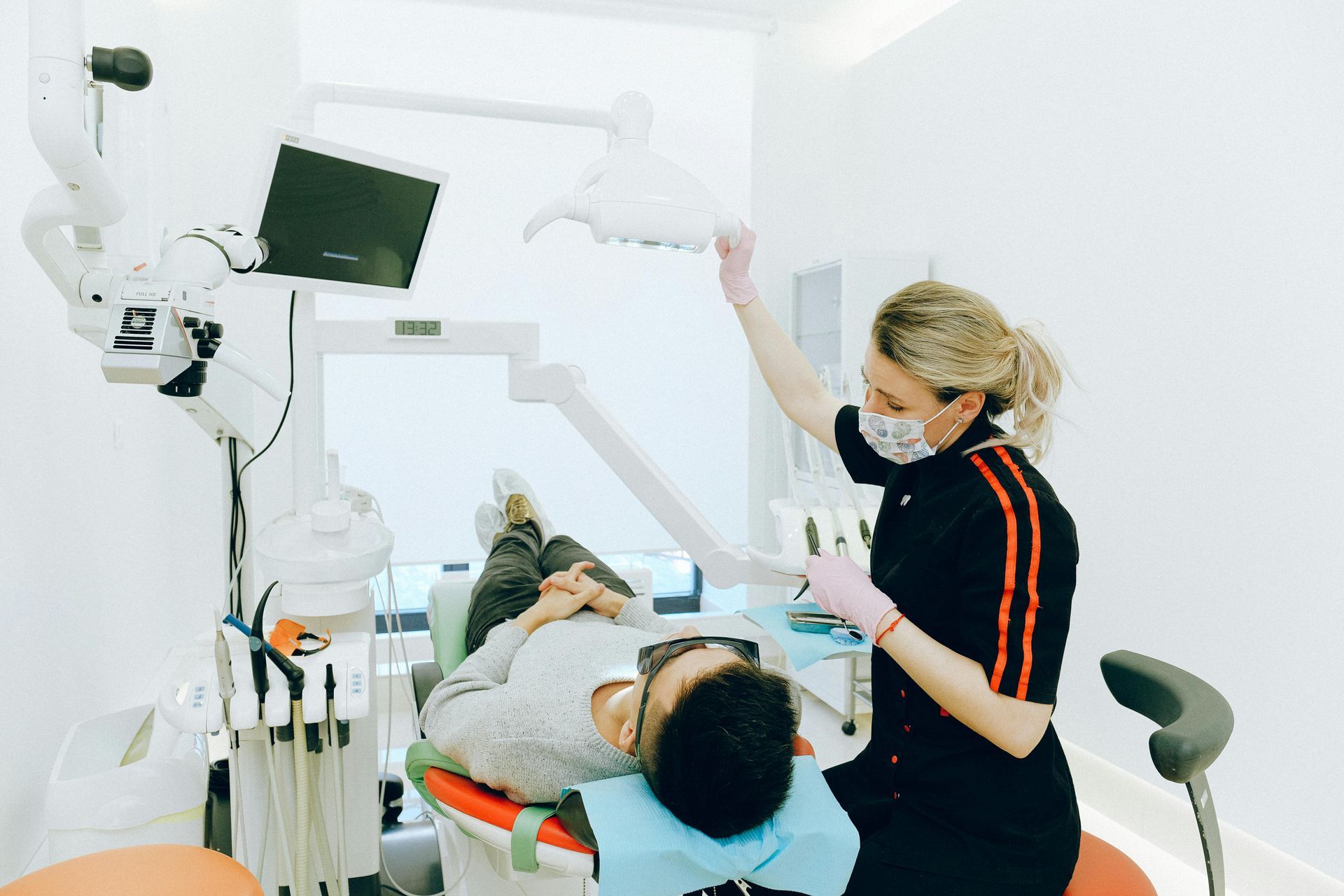
Understanding the Real Difference Between 1099 and W-2 Dentistry When you are a dentist, associate, or specialist and are trying to make the decision on whether to work as a 1099 or W2, you have likely heard the same old worn-out arguments: 1099 is better for write-offs, or W2 is better for benefits. Both are technically true, yet neither of them tell the whole story. It is not only the difference between the two in terms of taxes, but also the way you prefer to live and work every day. The Predictability and Simplicity of Being a W-2 Dentist Being a W2, life is a little more predictable. There are automatic withholding taxes, you receive standard benefits such as health insurance, malpractice, possibly a 401(k), and some CE or PTO. It is predictable, well-organized, and simple to manage. This arrangement is attractive to most associates, especially at the beginning of their careers. You are able to concentrate on mastering your dentistry skills and do not have to concern yourself with quarterly tax and business deductions; you can do your taxes simply through an online software. It is the plug-and-play version of your career: you come in, work hard, and leave. The downside here is that you sacrifice a certain degree of control; you can't write off costs as easily, your schedule may be predetermined, and your income potential is limited unless production-based bonuses are high. However, the peace of mind and ease are worth it to many. The Flexibility and Responsibility of a 1099 Arrangement Now, when you take a 1099 offer, that is a whole different game. You are not merely a dentist; you are a small business. You are more flexible and have more opportunities to design your income the way you want. CE courses, scrubs, supplies, travel, and part of your home office can be written off. If you are a car person (like me), you can take advantage of Section 179 of the tax code and be able to write off a business deduction for a vehicle over 6,000 pounds, think Bentley Bentayga and Mercedes G-Wagon. You choose the way you spend your money and construct your way of life. However, this comes with the responsibility, quarterly tax payments, and spending money to get a qualified CPA, instead of possibly doing your taxes through a low-cost version of TurboTax if you were W-2. Some love it, some don't. Choosing the Structure That Best Suits Your Life and Goals No universal solution fits all, and that is what people jump over. The final determination lies in the fact that you know what arrangement will suit your goals and life. The point is understanding what you are really getting yourself into before signing a contract. Written by: Vinny Grasso
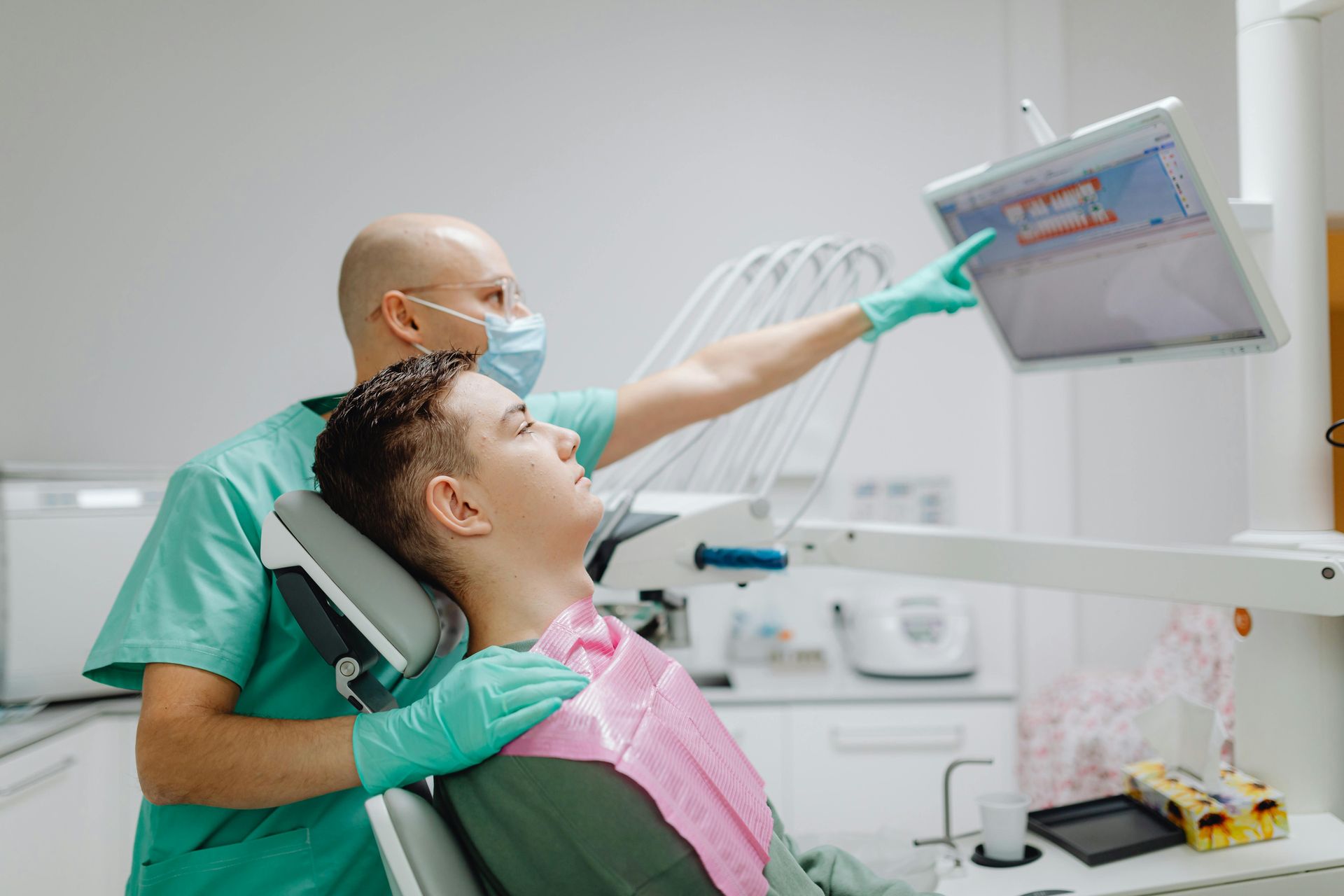
What is Life and Disability Insurance Underwriting? There are two components used in underwriting Life and Disability insurance Medical Underwriting: is used to identify risk in a person’s health history and lifestyle when applying for an insurance policy. Financial Underwriting: is used to evaluate an applicant’s financial situation, income, assets, and debts for the same purpose as Medical Underwriting. In this article we will look at changes made to these processes since entering the 21st century. What has changed in the last 26 years? Accelerated and Simplified: The largest change one may notice is the increased efficiency in which a policy may be issued. Insurers removing the need for physical medical exams, blood tests, and extensive attending physician statements for many applicants has greatly helped in speeding up the issue of policies. Use of Data Resources: Underwriters have a much larger pool of data to draw from than in years past. More obvious sources include MIB (Medical Information Bureau), motor vehicle reports (MVR), prescription histories, and credit scores. Lesser-known sources for data collection may include use of data from wearable devices, health apps, and public records (given consent from the consumer). These can be invaluable resources when assessing risk. AI: Artificial Intelligence is capable of automating data collection, performing predictive risk modeling, identifying patterns, and making instant decisions for simple cases. These tools allow human underwriters the time and energy to focus on complex cases. Advancements like these in underwriting cannot be understated in their usefulness. Personalization: In the effort to make the experience more comfortable for customers, there has been a shift towards digital applications, tele-underwriting (remote interviews), and virtual medical exams. This personalization extends to pricing, with some models offering dynamic premiums based on real-time data and health behaviors. The ease provided by these developments in not only technology, but also in information processing have been crucial to the underwriting landscape as we currently know it. While the previous advancements have been on the side of the underwriters, the following reflect more on the societal and regulatory changes that have occurred in the timeframe we are discussing. Privacy: With the new data collection resources underwriters have access to, concerns regarding privacy have been rightly raised. Insurers are now more scrutinized on the transparency of how data is collected and used in regards to building customer trust and regulation compliance. Mental Health: With disability policies, we’ve seen insurers pivot towards more often offering coverage for mental health condition spurred on by societal views and demands as understanding around mental wellness expands. We can see that through these advances in underwriting that insurers, who can appear to be flippant in their requirements for coverage, have been hard at work refining their methods to better fit the needs of the now. In the insurance industry, often considered slow-changing for several reasons including some companies reliance on antiquated systems; high levels of regulation on the state and federal level; risk aversion creating a cautious environment that does not handle quick changes well; and a cyclical presence in the market more easily handled by having a reactive approach opposed to proactive, it is plain as day that the industry is capable of growing and adapting to this ever-evolving world. Written by: Jerold Dougherty
